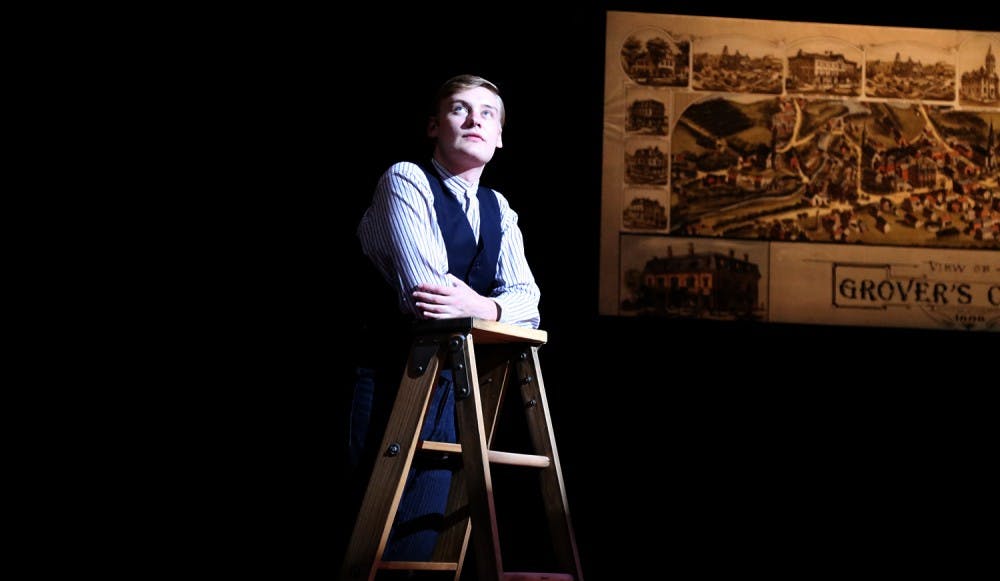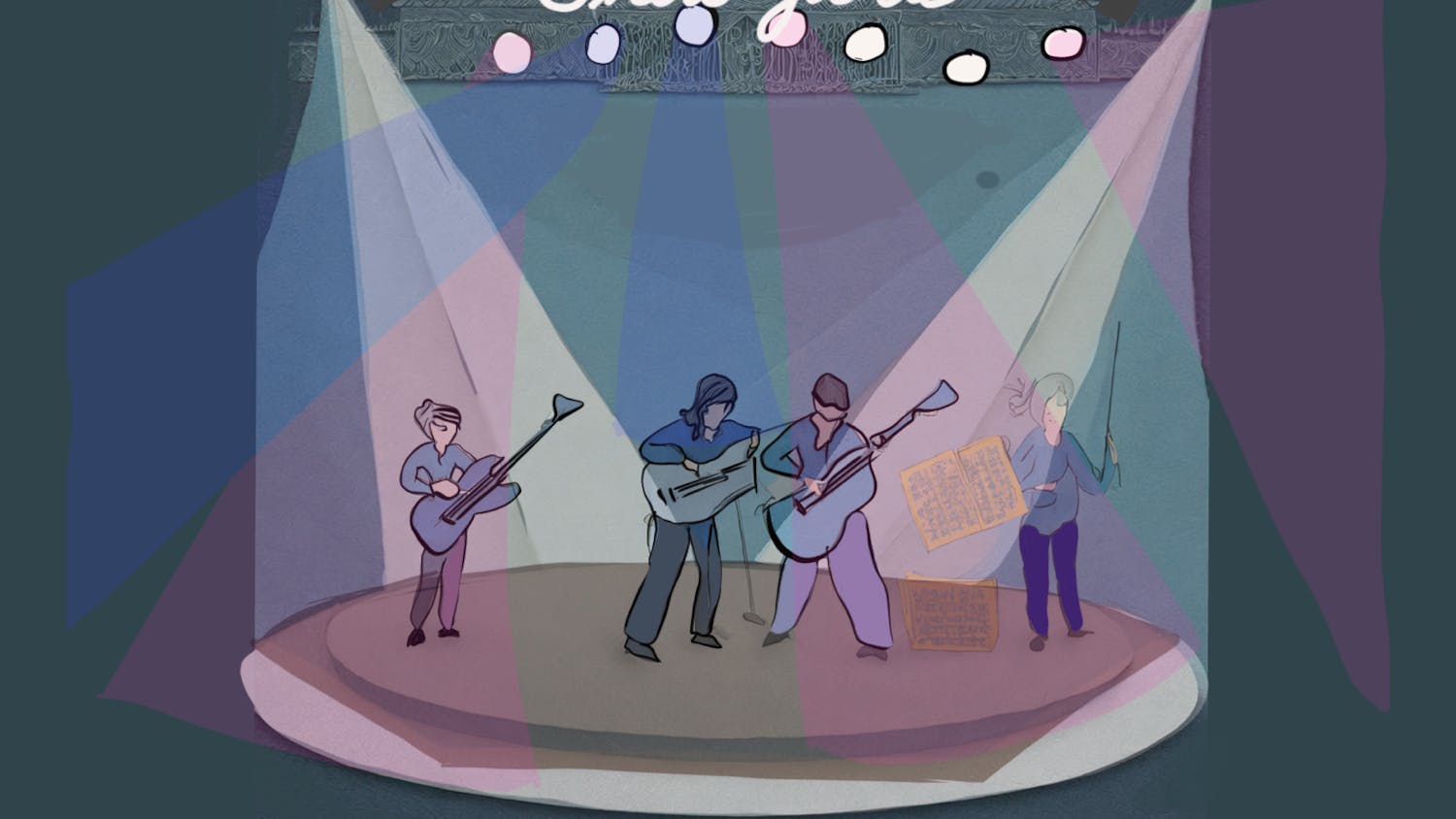With just a 16-member cast and a minimal set of only a few tables and chairs, the Wells-Metz Theatre will transform into the charming town of Grover’s Corners for the play “Our Town." The production, which runs from July 6 to 28, will celebrate the play's 80th anniversary this year.
The play, set in the early 1900s and written by Pulitzer Prize-winning playwright Thornton Wilder, follows the lives and stories of the citizens of Grover’s Corners in three acts: “Daily Life,” “Love and Marriage” and “Death and Eternity.”
“It’s a great American play about the experience of everyday life, love and death,” director Dale McFadden said. “It has some serious reflections about the infinite, the fact that death is a part of living and the dead help us to remember how we should live our own lives.”
As the play opens, the town doctor, Dr. Gibbs, returns from a successful childbirth, which contrasts with the focus on death in the final act.
“It comes full circle,” Jay Hemphill, who plays Dr. Gibbs, said. “I think it’s really representative of the circle of life.”
The plot of the first act is simple, even mundane, Hemphill said, but they reflect people’s everyday lives. Hemphill said the act explores the struggles, pain and questions people pose about how they should live life and if they are making the right choices.
“It’s just life, and life can be mundane,” Hemphill said. “Life and death occurs, and then there’s the everyday stuff in between.”
For George, the main character and 16-year-old son of Dr. Gibbs, the first act is a turning point, said Michael Bayler, the actor playing George. Bayler said his character is just beginning to make his own decisions and be responsible, something he said would be especially relatable to high school and college-aged audience members.
“He’s moving from being in his own bubble to experiencing more about what’s happening in the world around him,” Bayler said.
The second act considers love and marriage when George falls in love with, and eventually marries, another Grover’s Corners resident, Emily. While he said many people read George and Emily’s relationship as sappy, Bayler sees it as pure and honest in how his character finds someone who he can reveal his thoughts to without fear of judgment.
People in different stages of life will see something different in the relationship, Bayler said. Some may see a layer of hope. Others may see reason to enjoy the present, rather than being preoccupied with the past or future. Still others, Bayler said, will see a sense of anxiety as two young people make a decision that will affect the rest of their lives.
“You see doubt and uncertainty before the wedding, which is just as real and honest as the prettier part of falling in love,” Bayler said.
While it shows this anxiety, Hemphill said the play still stresses living life in pairs without forcing a perspective on marriage.
“People say marriage is sanctified, but the play says it doesn’t know about all of that,” he said. “It just knows people should be with people.”
In the final act, a main character’s death sets up what McFadden describes as the most poetic part of the play.
While the play does not have a definitive answer about what comes after death, McFadden said it isn’t afraid to explore death in an intriguing, yet engaging way, that is difficult to put into words.
“We are never able to realize every moment in the great experience of being alive, but we do the best we can,” McFadden said. “And the mystery of death and the beyond is a question we cannot answer, but it’s a part of a larger process, and that’s what the play is saying in the final act.”
For Bayler, whose mother died last December, the character’s death carries a heavier weight, and the scene in which he reacts to death is one of his most difficult. During this scene, Bayler said he never tells himself to act sad.
“The scene isn’t as simple as that,” he said. “There’s times where there’s fear and anger and all sorts of emotions that need to be felt, so you just have to step onto the stage and let yourself be affected by the moment.”
In the final act, the dead begin to speak to one another as they watch the living. Bayler said the words of the dead tell audience members that they should appreciate every moment of life. They also remind him of a piece of advice he heard after his mother died — to just take life one day at a time.
As a dead character watches living ones grieve, she says, “They don’t understand, do they?”
McFadden said she is speaking to the living and expressing it is impossible to fully understand life while living it.
“And they don’t understand that even the biggest sufferings of life will at some point disappear,” he said.
One challenge of the play is to give each interaction among the characters enough weight to create a communal love in the town, McFadden said.
“To create that feeling of love, you can’t just rush through those conversations and moments between the people in the town,” McFadden said.
Hemphill said he sees the early 1900s town as nostalgic, but the play isn’t the dusty old classic people may assume it is.
Instead, Bayler said the play transcends time and captures the beauty and struggle of life.
“The trap that people fall into with this play is thinking about it as a look at how things were in that time,” Bayler said. “But it’s more than that. It’s a piece that speaks to us and how we as human beings operate even today.”




